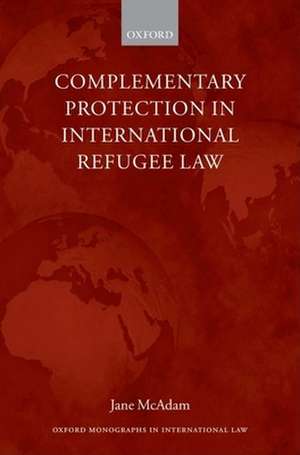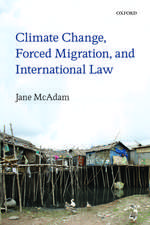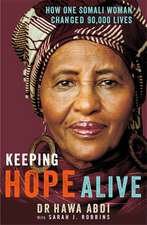Complementary Protection in International Refugee Law: Oxford Monographs in International Law
Autor Jane McAdamen Limba Engleză Hardback – 22 feb 2007
Din seria Oxford Monographs in International Law
- 19%
 Preț: 679.35 lei
Preț: 679.35 lei - 30%
 Preț: 658.92 lei
Preț: 658.92 lei - 21%
 Preț: 592.91 lei
Preț: 592.91 lei - 30%
 Preț: 539.57 lei
Preț: 539.57 lei - 26%
 Preț: 660.80 lei
Preț: 660.80 lei - 30%
 Preț: 663.08 lei
Preț: 663.08 lei - 21%
 Preț: 595.11 lei
Preț: 595.11 lei - 25%
 Preț: 658.59 lei
Preț: 658.59 lei - 27%
 Preț: 370.44 lei
Preț: 370.44 lei - 34%
 Preț: 1347.24 lei
Preț: 1347.24 lei - 27%
 Preț: 378.60 lei
Preț: 378.60 lei - 34%
 Preț: 1316.26 lei
Preț: 1316.26 lei - 34%
 Preț: 862.62 lei
Preț: 862.62 lei - 28%
 Preț: 485.50 lei
Preț: 485.50 lei - 18%
 Preț: 335.79 lei
Preț: 335.79 lei - 17%
 Preț: 357.57 lei
Preț: 357.57 lei - 31%
 Preț: 400.01 lei
Preț: 400.01 lei - 34%
 Preț: 719.40 lei
Preț: 719.40 lei - 8%
 Preț: 425.80 lei
Preț: 425.80 lei - 30%
 Preț: 1145.50 lei
Preț: 1145.50 lei - 12%
 Preț: 472.49 lei
Preț: 472.49 lei - 30%
 Preț: 818.86 lei
Preț: 818.86 lei - 34%
 Preț: 603.33 lei
Preț: 603.33 lei - 28%
 Preț: 496.88 lei
Preț: 496.88 lei - 34%
 Preț: 970.38 lei
Preț: 970.38 lei - 19%
 Preț: 421.08 lei
Preț: 421.08 lei - 30%
 Preț: 887.10 lei
Preț: 887.10 lei - 18%
 Preț: 347.53 lei
Preț: 347.53 lei - 19%
 Preț: 345.83 lei
Preț: 345.83 lei - 27%
 Preț: 343.41 lei
Preț: 343.41 lei - 34%
 Preț: 719.71 lei
Preț: 719.71 lei - 31%
 Preț: 393.71 lei
Preț: 393.71 lei - 34%
 Preț: 1111.19 lei
Preț: 1111.19 lei - 33%
 Preț: 606.97 lei
Preț: 606.97 lei - 31%
 Preț: 472.87 lei
Preț: 472.87 lei - 27%
 Preț: 422.60 lei
Preț: 422.60 lei - 28%
 Preț: 418.39 lei
Preț: 418.39 lei - 30%
 Preț: 821.77 lei
Preț: 821.77 lei - 48%
 Preț: 467.95 lei
Preț: 467.95 lei - 18%
 Preț: 337.91 lei
Preț: 337.91 lei - 27%
 Preț: 598.45 lei
Preț: 598.45 lei - 30%
 Preț: 589.60 lei
Preț: 589.60 lei - 50%
 Preț: 834.70 lei
Preț: 834.70 lei - 30%
 Preț: 864.33 lei
Preț: 864.33 lei
Preț: 600.85 lei
Preț vechi: 860.00 lei
-30% Nou
Puncte Express: 901
Preț estimativ în valută:
114.99€ • 119.60$ • 94.93£
114.99€ • 119.60$ • 94.93£
Carte tipărită la comandă
Livrare economică 04-10 aprilie
Preluare comenzi: 021 569.72.76
Specificații
ISBN-13: 9780199203062
ISBN-10: 0199203067
Pagini: 322
Dimensiuni: 160 x 240 x 26 mm
Greutate: 0.66 kg
Editura: OUP OXFORD
Colecția OUP Oxford
Seria Oxford Monographs in International Law
Locul publicării:Oxford, United Kingdom
ISBN-10: 0199203067
Pagini: 322
Dimensiuni: 160 x 240 x 26 mm
Greutate: 0.66 kg
Editura: OUP OXFORD
Colecția OUP Oxford
Seria Oxford Monographs in International Law
Locul publicării:Oxford, United Kingdom
Recenzii
This book is a laudable project, because it addresses an issue which is important both for practice and for theory. EU legislation and developments in case-law concerning general human rights instruments have changed the field in the past few years, hence a comprehensive study is timely...McAdam's book draws attention to an important issue. It is full of relevant information and insights.
'this book has an important role in encouraging the reader to consider the extent to which the existing framework might be applied to emerging patterns of migration and displacement. McAdam provides a solid foundation for the future analysis of issues which have the potential to shape the ongoing development of complementary protection in international law.'
An outstanding contribution to the literature [that] is necessary reading for anyone engaged with refugee protection today
... a meticulously researched and carefully structured book, persuasively and elegantly written.
... a weighty analysis that covers a broad area of considerable topical interest
McAdam writes very clearly: her lucid style makes her arguments very easy to follow, which is a real asset for an academic wishing to have an impact on law makers... McAdam's work is significant because of the unjust and arbitrary way in which Australia currently handles the compassionate and humanitarian claims of people who the system judges not to be refugees. This work provides a principles framework through which to approach the task of determining which non-refugees should be allowed to remain in Australia and what their base entitlements should be.
'this book has an important role in encouraging the reader to consider the extent to which the existing framework might be applied to emerging patterns of migration and displacement. McAdam provides a solid foundation for the future analysis of issues which have the potential to shape the ongoing development of complementary protection in international law.'
An outstanding contribution to the literature [that] is necessary reading for anyone engaged with refugee protection today
... a meticulously researched and carefully structured book, persuasively and elegantly written.
... a weighty analysis that covers a broad area of considerable topical interest
McAdam writes very clearly: her lucid style makes her arguments very easy to follow, which is a real asset for an academic wishing to have an impact on law makers... McAdam's work is significant because of the unjust and arbitrary way in which Australia currently handles the compassionate and humanitarian claims of people who the system judges not to be refugees. This work provides a principles framework through which to approach the task of determining which non-refugees should be allowed to remain in Australia and what their base entitlements should be.
Notă biografică
Dr Jane McAdam is a lecturer in law at the University of Sydney. Prior to assuming that appointment in 2005, she held a law lectureship at Lincoln College, University of Oxford, where she undertook her doctorate on complementary protection in international refugee law. Dr McAdam is the co-author with Dr Guy S Goodwin-Gill of the forthcoming third edition of The Refugee in International Law (OUP Oxford 2006), and has published widely in the areas of international human rights law, refugee law and history. She has worked on a variety of projects with UNHCR, the European Union, the Czech-Helsinki Committee, Amnesty International, the Refugee Council of Australia and the Refugee Studies Centre at the University of Oxford. She is the former General Editor of the Oxford University Commonwealth Law Journal and is currently a member of the Editorial Board of the Sydney Law Review. She is also a member of the Management Committee of the Refugee Advice and Casework Service in Sydney.











